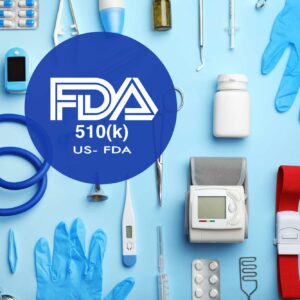Last week, FDA issued draft guidance regarding updates for its Medical Device User Fee Small Business Qualification and Certification program, potentially opening a (small) window for FDA waiver of the medical device establishment registration fee for device establishments that are small businesses and that qualify for financial hardship. U.S. FDA medical device establishment registration and listing applies to various supply chain parties of Class I, II, and III medical devices (including cosmetic devices) with some exemptions.
On December 29, 2022, the Food and Drug Omnibus Reform Act of 2022 (“FDORA”) was signed into law as part of the Consolidated Appropriations Act, 2023, Pub. L. No. 117-328. Section 3309 of the Omnibus “Small Business Fee Waiver” amends section 783(a)(3)(B) of the Federal Food, Drug, and Cosmetic Act (FD&C Act) to provide FDA discretion, beginning in FY 2025, to waive the establishment registration fee for device establishments that are small businesses, if FDA determines that paying such fee represents a financial hardship. While the current proposal is limited, the Agency’s move to open a window to provide a waiver from medical device establishment registration is significant. FDA has typically permitted small businesses with an approved Small Business Determination with gross receipts or sales of $100 million or less reduced filing fees for Premarket Notification (510(k)), De Novo Request, Premarket Applications (Premarket Approval Application (PMA)), 513(g) request for classification, and more. However, there have been no waivers or reductions for small establishments, businesses, or groups from the FDA medical device establishment registration fee. The current establishment registration fee for FY 2024 is $7,653.
For purposes of the new fee waiver provision, FDA defines a small business as those that reported $1,000,000 or less of gross receipts or sales in their most recent Federal income tax return. FDA is also proposing to update the guidance to reflect how applications based in non-National Taxing Authority (NTA) jurisdictions do not need to submit a certification from NTA to be eligible for fee waivers or reductions.
The new proposal provides an opportunity for a registration waiver if a business can demonstrate financial hardship. As outlined in the newly issued draft guidance, FDA intends to grant waivers only where financial hardship is demonstrated by a clear and objective standard, and where the information is publicly transparent. Currently, FDA is advising that the only situation the Agency is aware of that satisfies this standard is where the small business is in active bankruptcy. To qualify, the draft guidance provides that an applicant must provide evidence that it has filed a bankruptcy petition that it is active.
While eligibility for the proposed medical device registration waiver may be currently limited, the draft guidance represents a step towards FDA’s current “no-exception” rule. It will be interesting to see how the concept of financial hardship (e.g. potentially first-time applicants seeking premarketing clearance/approval for medical devices with no revenue stream) develops and expands over time. Garg Law will continue to monitor these developments and to keep our readers apprised.
The comment period on the draft guidance is open until April 22, 2024 and comments can be submitted electronically to Regulations.gov.
For more information on FDA medical device establishment registration and listing, medical device compliance or enforcement matters including 510(k) premarket notifications, or for assistance in providing comments on the draft guidance, please contact us at info@garg-law.com.


